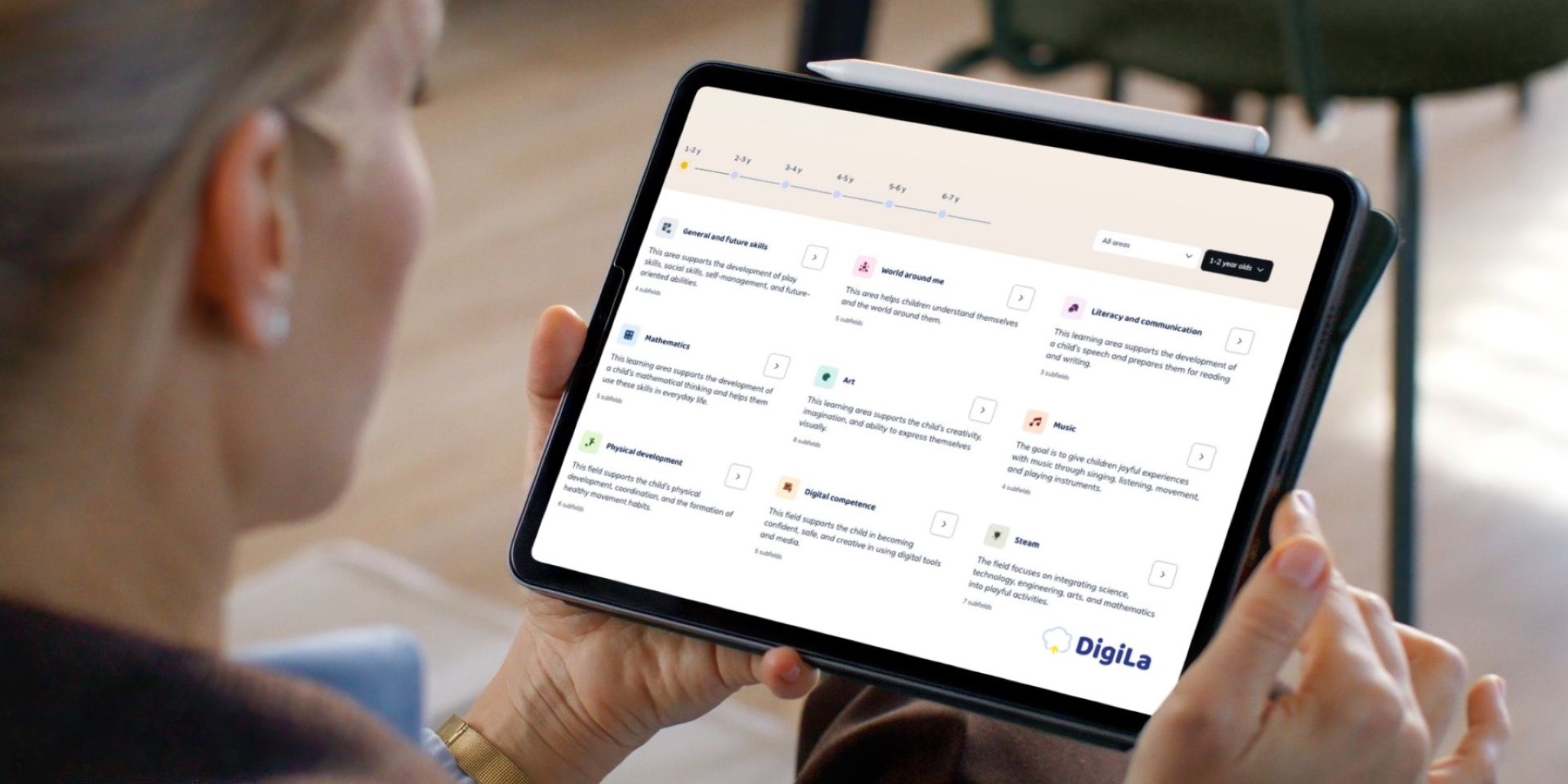- In the media
- digital technologies
- artificial Intelligence (AI)
- impact on children
- future skills
DigiLa launches a data driven AI supported early childhood development platform
The platform makes early development visible for parents and teachers and uses AI to assist professionals, while every decision about the child remains in human hands. DigiLa, a new platform that makes early childhood development visible and actionable for both parents and educators, has officially launched and is now in daily use across the Väike Päike early childhood education network in Estonia, supporting nearly 1,000 children aged 1–7.
Early childhood (0–7) is the fastest and most critical stage of human development. By age five, a child’s brain volume is already close to that of an adult, and core abilities like self-regulation, social skills, early reasoning, confidence, and learning habits are already forming. Yet most of this development is essentially invisible. Parents are often told, “Everything was fine today,” but they rarely see what “fine” actually means. “Everything is fine’ is not enough feedback for a parent anymore,” said Sven Soomuste, CEO of DigiLa. “DigiLa helps make the invisible visible. A parent cannot be a bystander to their child’s development — they need to be an active partner in understanding, supporting, and guiding it.”
How does DigiLa work?
Teachers and caregivers observe and note each child’s development - communication, self-regulation, problem-solving, early numeracy, social behaviour, confidence, cooperation and more. DigiLa organises these observations according to the national early childhood curriculum and shows which skills are already established and which skills still need practice.
Parents don’t just receive generic updates. They get a clear picture:
• the current stage of their child’s development;
• which abilities are emerging and which need more support, and
• how to support their child at home in sync with what’s happening in kindergarten.
“For example, if counting still needs practice, DigiLa can suggest simple, concrete activities or videos that help a child work on counting in daily life,” said Mari Kummer, pedagogical consultant for DigiLa. “It’s not just a vague suggestion — DigiLa gives you clear, step-by-step instructions on how to support a specific skill.”
AI support for adults to analyse a child's development
DigiLa uses AI to help educators and specialists work with large amounts of developmental information. AI helps to analyse input, generate summaries, and prepare personalised recommendations. AI does not “teach the child,” and AI does not decide what happens to the child.
“Our position is very clear,” said Soomuste. “AI in DigiLa supports the adult. It helps the teacher, the specialist, and the education lead. Every decision about the child is still made by a human who knows that child.”
Live feedback from real users
DigiLa is already being used every day across the Väike Päike early education network in Estonia, which serves nearly 1,000 children. “We are testing and building DigiLa inside real classrooms and real families,” said Karin Eesmaa, project manager at DigiLa. “We are already seeing genuine ‘wow’ reactions from parents and teachers, real moments where they are saying: now I finally see what’s really happening.“ “At the same time, we’re also seeing where we need to improve wording, clarity, or the way recommendations are delivered. This kind of feedback is invaluable.”
What are the next steps for DigiLa?
DigiLa’s focus for the coming months is depth, not scale. The team will continue working closely with parents, teachers, education leads, and centre directors in Väike Päike to refine the product, measure real impact in daily life, and make sure the insights are genuinely useful.
A second priority is clarity and trust for parents: every parent should understand what they’re seeing and know exactly how to help their child without feeling judged or lost. Third, DigiLa is working on a version that any family can join — even before their child starts kindergarten. In the long term, we aim to connect expecting and new families with DigiLa, empowering them to support their baby’s development from day one. “We want every parent to be in the driver’s seat of their child’s development,” said Soomuste. “Not once a year in a parent-teacher meeting, but continuously.”
DigiLa will continue this deep co-development phase through the end of this year, focusing on impact and trust before taking the next steps.
Get more information about DigiLa:
Sven Soomuste, the founder and CEO of DigiLa
sven.soomuste@digila.eu
Author: Birgit Anette Bibikov
Share article:
